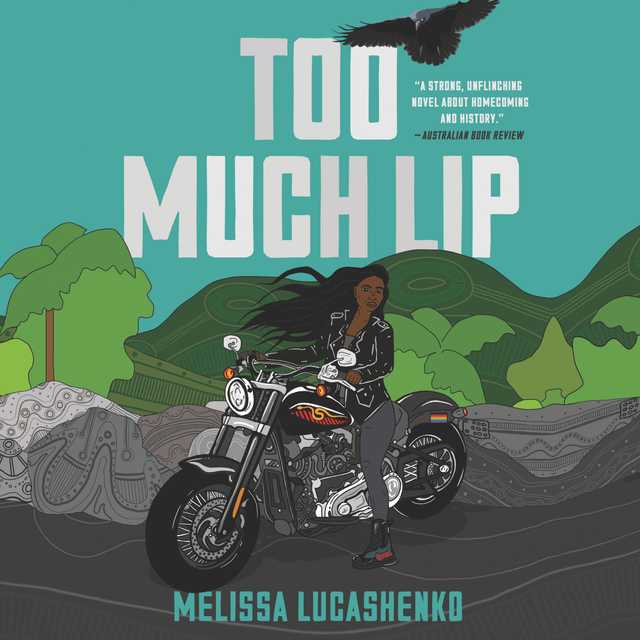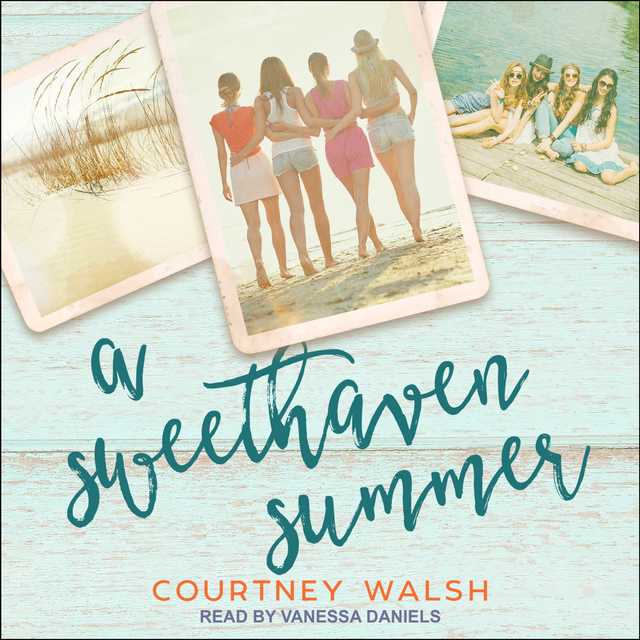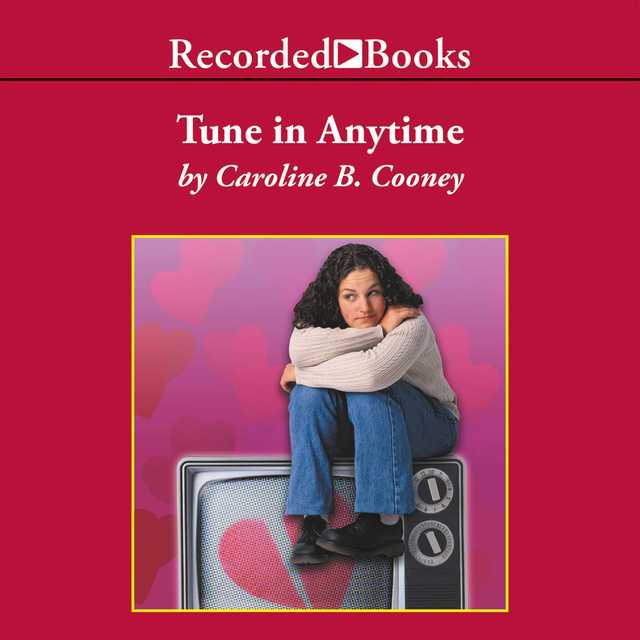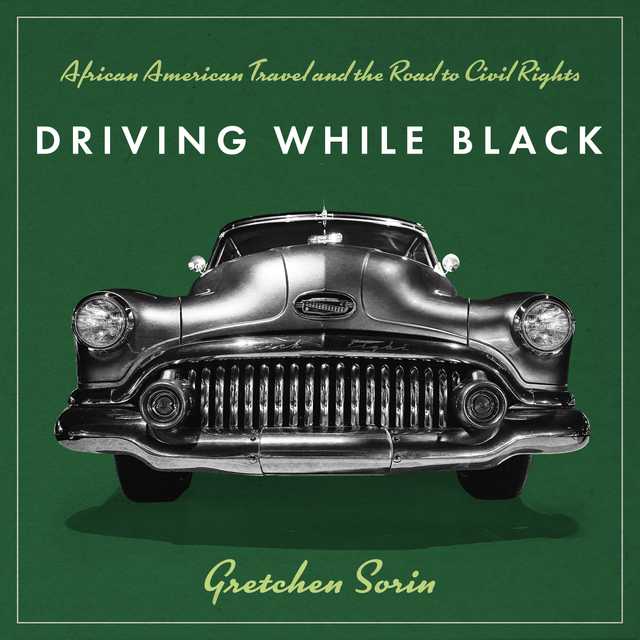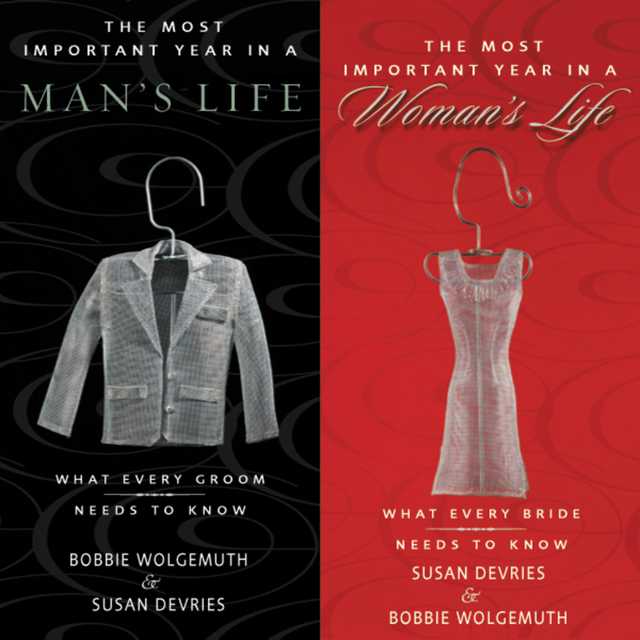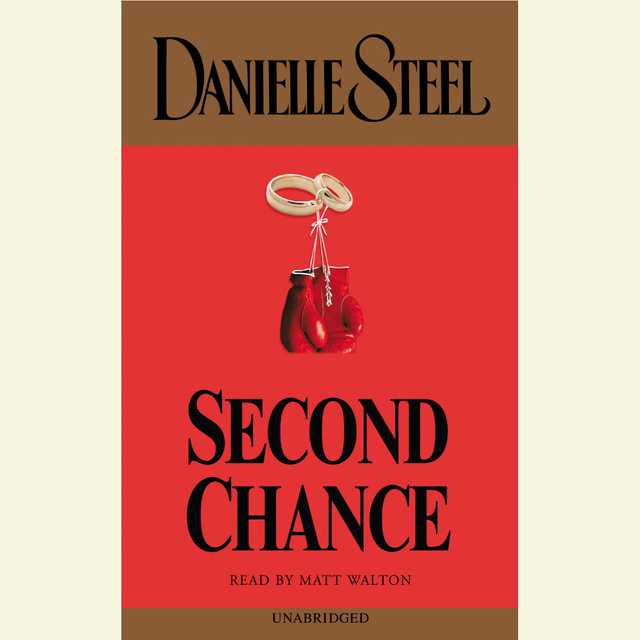Too Much Lip Audiobook Summary
A gritty and darkly hilarious novel quaking with life–winner of Australia’s Miles Franklin Award–that follows a queer, First Nations Australian woman as she returns home to face her family and protect the land of their ancestors.
Wise-cracking Kerry Salter has spent her adulthood avoiding two things: her hometown and prison. A tough, generous, reckless woman accused of having too much lip, Kerry uses anger to fight the avalanche of bullshit the world spews. But now her Pop is dying and she’s an inch away from the lockup, so she heads south on a stolen Harley for one last visit.
Kerry plans to spend twenty-four hours, tops, across the border. She quickly discovers, though, that Bundjalung country has a funny way of latching on to people–not to mention her chaotic family and the threat of a proposal to develop a prison on Granny Ava’s Island, the family’s spiritual home. On top of that, love may have found Kerry again when a good-looking white fella appears out of nowhere with eyes only for her.
As the fight mounts to stop the development, old wounds open. Surrounded by the ghosts of their Elders and the memories of their ancestors, the Salters are driven by the deep need to make peace with their past while scrabbling to make sense of their present. Kerry just hopes they can come together in time to preserve Granny Ava’s legacy and save their ancestral land.
Other Top Audiobooks
Too Much Lip Audiobook Narrator
Tamala Shelton is the narrator of Too Much Lip audiobook that was written by Melissa Lucashenko
Melissa Lucashenko is a Goorie author of Bundjalung and European heritage. Her first novel, Steam Pigs, was published in 1997 and since then her work has received acclaim in many literary awards. Too Much Lip is her sixth novel and won the 2019 Miles Franklin Literary Award and the Queensland Premier’s Award for a Work of State Significance. It was also shortlisted for the Prime Minister’s Literary Award for Fiction, the Stella Prize, two Victorian Premier’s Literary Awards, two Queensland Literary Awards and two NSW Premier’s Literary Awards. Melissa is a Walkley Award winner for her non-fiction, and a founding member of human rights organization Sisters Inside. She writes about ordinary Australians and the extraordinary lives they lead.
About the Author(s) of Too Much Lip
Melissa Lucashenko is the author of Too Much Lip
More From the Same
- Publisher : HarperAudio
- Abraham
- American Gods [TV Tie-In]
- Dead Ringer
- House of Sand and Fog
- Prey
Too Much Lip Full Details
| Narrator | Tamala Shelton |
| Length | 9 hours 24 minutes |
| Author | Melissa Lucashenko |
| Category | |
| Publisher | HarperAudio |
| Release date | November 03, 2020 |
| ISBN | 9780063032569 |
Subjects
The publisher of the Too Much Lip is HarperAudio. includes the following subjects: The BISAC Subject Code is Cultural Heritage, Fiction
Additional info
The publisher of the Too Much Lip is HarperAudio. The imprint is HarperAudio. It is supplied by HarperAudio. The ISBN-13 is 9780063032569.
Global Availability
This book is only available in the United States.
Goodreads Reviews
Cass
September 05, 2018
Wow. I finished reading Too Much Lip (UQP 2018) by Goorie author Melissa Lucashenko, and have spent yesterday and today fiddling around with this review, adding bits here and there, trying to get it right and not feeling very successful. This is a hard review to write, or rather, it is difficult to express myself in the right way. This book is good. Very good. It is an unflinching, raw and honest exploration of one modern-day (fictional) Aboriginal family, with all its flaws and problems. But it is also a book that offers important cultural and historical insights into intergenerational trauma and abuse. It is a book that doesn’t waste time asking questions such as why and how, but instead jumps straight in and provides the answers by depicting the effects of history. Yes, I’m talking about colonisation (or invasion) and massacres, about slavery and stolen land and stolen children, about one group of people attempting to systematically crush the spirit of another. For while this story is ostensibly about Kerry Salter and her family, on a deeper level it is about so much more. This book pulls no punches, and the author makes abundantly clear her rage at what has occurred, her absolute abhorrence of the treatment of her ancestors (she is of Bundjalung and European heritage). But just as she sweeps us up in the injustice and futility of our nation’s past, she takes the sting from the tail with small moments of honour and faith, small acts of love and sacrifice. Just as she immerses us in the most terrible incidents of violence, she lifts us up with the strength of family ties, with the clarity of connection and belonging. And she does this with such humour, such dark and funny wit, such outrageous and cinematic scenarios, that we cannot help but laugh out loud even while we’re cringing with embarrassment, even while the inevitable despondency descends. This book has all the feelings.The Salter family has suffered and is suffering, but its people are not downtrodden or lost or vanquished. They are survivors. They are tough and steely. They present their armour to the world, but underneath we catch glimpses of their soft and vulnerable underbellies. This is a book that confronts the reader with graphic and uncomfortable situations and invites us right through the door to experience them. Reading through these pages is to – just for a short time – inhabit their world. This is the best kind of example of how fiction breeds empathy. And no matter how far you feel you are from the Salter family, I can guarantee that by the end of this book, you will understand something you didn’t before, and appreciate the pain and struggle of others in a new way. The book opens with a violent prologue set in 1943, and this one incident gives us some small insight into the events that forge the shape of what is to come. Seventy years later, the revenge and hurt and humiliation have festered, and imprinted a dark legacy for future generations. In Too Much Lip we are introduced to a cast of memorable characters and a zany and improbable storyline, all the more remarkable because it is based on truths. This modern-day adventure – part heist, part romance, part family saga, part protest – is set against the blood and violence of history and the cruel realities of the present day. The protagonist, Kerry Salter, is angry, tough, generous, reckless and, like all the characters in this book, at times intensely dislikeable and at other times wholly sympathetic and compelling. She’s on the run on a stolen Harley, with a backpack full of who-knows-what (but it’s sure to be trouble), after leaving her girlfriend locked up in a Brisbane prison. She hasn’t seen her family for over a year, and when she returns because her grandfather is dying, it’s to the full catastrophe and chaos of dysfunctional family life, including the absence of her sister Donna who disappeared 20 years earlier. Determined to stay only 24 hours, Kerry’s plans are derailed when she meets a handsome dugai inclined to hold fast to her, despite her best intentions to stay single. Her older brother Ken is bitter and resentful and throws his weight around through violent rages. Along with the rest of her family – her younger brother Black Superman, her mum Pretty Mary, and a whole mob of uncles, aunties and cousins – they band together to try and save their spiritual home, Granny Ava’s Island, from the imminent development of a prison on its peaceful river banks. As this large and chaotic group of characters come together and drift apart, as they yarn and celebrate and commiserate and mourn, they are surrounded by the ghosts of their Elders and the memories of their ancestors, and driven by the deep need to make peace with their past while scrabbling to make sense of their present.Within the first few pages of this book, the characters reach out and grab you by the throat and refuse to let go. Drawn into Kerry’s world, you begin to recognise her family and friends. The language of Too Much Lip is astonishing; the dialogue is authentic and the descriptions lush. Lucashenko has impressively woven Aboriginal words so seamlessly into the narrative that by the time I got to the final pages, I understood the meaning of words I had never heard of prior to reading this book. She’s not heavy-handed with it though; she doesn’t hit you over the head with it. The words are just there, used naturally and easily. The animals have agency in this book – the crows, the shark – but this is done with the lightest touch, and with such a sense of humour and wit that it not only seems entirely probable that they have spoken and that we have understood them, but it seems amazing that until now we have noticed only their silence. Parts of this book are hard to read – the violence, the abuse, the alcoholism and addiction, the crime. Some of the revelations towards the end are difficult to accept, they come upon us suddenly and without warning, and throw us off balance as we struggle to come to terms with their meanings – the effects of history, the long arm of suffering, the impossibility of fighting against a lifetime of wrongs, and not only one lifetime, but generations of wrongs suffered by generations of predecessors. It is a difficult thing, to walk in the shoes of another, to inhabit their skin and feel their pain, and I’m not sure we as individuals can ever really do it effectively. But certainly in fiction, we can journey with others, we can take advantage of the writer’s unique perspective, and experience a little of what it must be like. We can empathise. We can try to understand. And that’s one thing this book offers – the opportunity to understand. Aboriginal culture, history and current problematic issues are not viewed through rose-tinted glasses but are presented with all their flaws and cracks; nevertheless because we are simultaneously reminded of context and insight, we understand better how these characters came to be in this place, and how these situations have developed. We see, perhaps, how a damaged foundation can threaten the stability of what is built upon it; how a legacy of damage can undermine a family or a society; how a series of wrongs can create layers of guilt and anger and revenge.Like the author’s previous work, this tale emphasises the connection between First Nation Peoples and their country, and highlights their innate sense of belonging, their unbreakable links with the land. However I think that Too Much Lip is even more accessible and engaging than Lucashenko’s previous award-winning book, Mullumbimby. Despite the Salter family being far removed from my own experience, I felt fully immersed in their lives. The sharp language and the cutting characterisations gave me fully realised and well-drawn characters, and enabled me to feel a sense of empathy with their struggles, even though I don’t share their intergenerational pain. I can only imagine what it would be like for an Indigenous person to read this book – to see their own story so raw and open. Lucashenko touches on issues that a white person wouldn’t dare; she frays nerves and opens wounds that an outsider could never touch. She does this bravely and with vigour. She lays it all out for us to see, and then dares us to approach. Look, she seems to say, Look at us. Look at where we are and what we have become. Look at what we’ve done. Look. As a non-indigenous reader, I can’t pretend to understand the pain that has birthed this book, but what I can do is open my ears and listen. Look and listen. And try to learn something.
Neale
June 15, 2019
The blue eyes of the bogans widen in surprise. They don’t see too many black chick’s on Harley’s around here. Kerry has just ridden three hours from Brisbane across the border to the town of Patterson in Durrongo to pay her dying Pop a final visit.The Salter family have never forgiven Kerry for leaving to live with the white fella’s in the big city a year ago. Kerry’s Mother livid that she has not bothered to contact them once since leaving. To her, no matter what happens, Kerry will always be the “Great Abandoner”, missing her Pop’s birthday the final nail hammered home. Mary, Kerry’s Mother has always been the rock of the family, but the imminent death of Kerry’s Pop has brought Mary to the point of collapse. Kerry thinks she may be expected to be the new rock of the Salter family. A job she fears that she can not live up to or want. Her brother Ken is an alcohol fuelled volcano, that everybody tiptoes around, always one drink away from erupting. His Son Donny’s alienation from the real world, and withdrawal into a computer one, a symptom of his disgraceful, violent treatment. It only takes Kerry a few days for her to realise that a return to this family is a burden to great for her to bear. Early one morning she decides to make her getaway. However, somehow as she is making her getaway, she is caught red handed by her Pop. Kerry stops on her way out the door to give her Pop a kiss on the forehead to find that he has passed away, racing ticket still clutched in his hand.Worlds away in Sydney, Martina, a realtor, has been offered, or ordered, by her boss, to travel across the border and work as assistant manager at the Patterson branch in Durrongo. She has been working hard to start her own agency and knows that refusal at this stage in her career is not an option. She grits her teeth knowing it is only eight or so weeks and she will be back in Sydney closer to her dream.Ultimately this novel is about the Salter family. Warts and all. Lucashenko uses the Salter family as an archetypal aboriginal family doing it tough in these small Queensland towns. Their struggles with income, alcohol, physical abuse. Lies and a horrible, shocking family secret that is revealed towards the end. Lucashenko does a wonderful job of hiding this secret from the reader and when it is revealed, it explodes like Chernobyl’s ill fated reactor. If you start this book, keep going because this climax is the highlight of the book.The issue of land rights is broached because Kerry’s Pop was an Elder of the tribe, and his wish and right, was to have his ashes dispersed on a small island which is adjacent to land that the council is intending to sell and build a correctional facility on. However, this land is sacred to the aboriginals, with their ancestors buried there. Kerry, the Salter family and friends, rally ready for a fight.Lucashenko, shows the reader that it is not just alcohol, violence, and physical abuse that are the problems, these result from the actual problem. That is the lack of tolerance of cultures and acceptance. We pride ourselves on being a multicultural society so we should start living up to what that really means. White colonization took place all over the globe, In our country horrible massacres took place, generations were stolen, terrible crimes committed against the true owners of this land. We need to recognise that this is the aboriginals land and start working together and reconcile. We can do the right thing, and enormous strides have been made already.A great read! 3.5 Stars
PattyMacDotComma
December 28, 2022
5★“When he recognised Kerry, Elvis leaped off the veranda and beat his half-a-tail wildly in greeting, all the while conspiring to get past her and p*ss on the bike’s front wheel. On his third attempt, the dog nearly made it, hopping sideways on three legs with the fourth poised high in anticipation.”There’s nothing quite like the exuberant greeting of the family dog, is there? Kerry’s been living in Queensland, away from Durrongo, the poor town in Northern NSW where she grew up. Her grandfather is dying, so she has ridden home on a stolen Harley motorbike.She’s on her own, because her partner, Allie, was caught for their crime and is in the women’s prison for five years, telling Kerry to forget about her, she’s already found another woman. At least the dog is glad to see her. As an introduction to the book, the author quotes: “She was charged with shooting the accused, who in giving evidence against her, made no secret of what his intentions were towards the woman. She, he said, was only a gin, and he could do what he liked with her.‘District Court, Criminal Sittings’,Brisbane Telegraph, 31 January 1908” I add this, because the history is central to this story. I’m old, and my in-laws were born around 1908, so this woman - only a gin - would have been the contemporary of one of their parents. That’s not ancient history to me, and the removal of children was still happening when I was having my children more than 60 years later (in Australia). I’m not Aboriginal (but know many), and I recognise this place, this extended family, and the issues they are grappling with. I think the author has captured it perfectly. The pain and resentment are still raw, and it’s at the core of the story.Other things are universal. No matter how determined you are to be an adult when you go back to where you grew up, the past is waiting to trap you into falling into old patterns.Kerry’s older sister disappeared nearly 20 years ago, and as soon as Kerry goes in the house, her mother, Pretty Mary, is still grieving for Donna as well as for the grandfather who is dying. Donna’s picture is still on display.“Kerry’s younger brother, Black Superman, a throwback on their father’s hip, so dark the pair of them looked like a different breed altogether. Mum, very beautiful at an early Lismore show, back when she really was Pretty Mary. Donna, the palest of the litter, with that fair skin that used to make Dad Charlie joke about the milkman leaving more than just full cream milk behind.. . . And off to the side, Donna again, blowing out birthday candles; a dead ringer for Amy Winehouse and sixteen forever.”On her way home, Kerry stopped by the river and managed to hide herself just in time when she heard a vehicle drive up. The Harley was parked on the road – could it be cops, looking for the stolen bike? She overhears the conversation.“She could sense a catastrophe unfolding in front of her, and her throat grew tight with unscreamed objections. What did these mongrels want near her Granny’s land that needed words like ‘rezoning’ and ‘development’? There were no happy answers to that. Kerry’s fear caught, high in her gullet, and she had to hold her hands hard against her mouth to stifle a cough of terror.”Whose land? Granny’s land, now ‘owned’ by a coloniser or invader. But the family has long revered Granny Ava’s stretch of the river and the island where she and some others in the family have been buried. She is passionate about the family and indigenous rites, as are her brothers. Black Superman is gay and has a partner and two kids, so there is an LGBT+ aspect, too.Kerry isn’t attracted only to women however, and when a fit whitefella jogs by, she is startled to find that he catches her eye and raises her curiosity. “There was no arguing with Kerry about dugais. Of the four Salter kids, she was the only one who had never gone with a whitefella, never even looked like she might. They’re so full of themselves, she would always say with a curled lip, look at em. The ‘whitenormalsavages, could ya even wanna.”Surprisingly… maybe she could wanna.This is full of language, by which I mean a lot of local indigenous words, some of which are familiar to me, and many which aren’t, but it’s pretty obvious what they generally mean. Dugais is one of the ones for whitefellas. Jahjums is kids. I have no idea whether these words are used across Australia or not.There are over 150 Aboriginal languages spoken in Australia now, and many others lost. When I first migrated, a linguist friend of mine said she could teach me some of an Aboriginal language, but unfortunately it was spoken by only five people. Unless it’s one of those that are being revived and taught, I bet it’s gone now, too. Mind you, I had a few people ask me back then if I spoke the language in Australia and were surprised to find that they did, too. (Americans are still pretty provincial, but movies have opened some eyes.)Lots of swearing and violence in this, but Lucashenko writes it so naturally that it just feels right. Wrong but right, if you know what I mean. A sorry, miserable fact of life.I listened to some of the audio, and it’s terrific. I recommend hearing Tamala Shelton speak so you know what the cadence and rhythm and inflection sounds like. It’s absolutely spot-on. Her voice and intonation changes are perfect as well. Whether it’s a kid or a crabby old woman, she’s caught their voice.Loved the book, the story, the people. Hate the conditions that have been inflicted upon them. The colonial empires have pretty much stuffed things all over the world. Enough. Read the book!P.S. Forgot to mention the awards it has won. Trust me - it has.
Michael
April 30, 2019
A brilliant portrait of trauma, dysfunction, resilience and strength. Lucashenko writes about tough people who've had tough lives and brings a sharp, funny eye to difficult topics.(Read this a second time for bookclub and loved it just as much)
Paltia
June 12, 2019
Talking crows, a spirit guide shark, tarot cards, and dreaming are all packed into this tale of redemption. Kerry, Black Superman, and other Salters have their reasons for flight. Flight as in a movement away from your home and family. They want to try out their wings and feel the winds of freedom on their backs. At first it is so exhilarating- simply being so full of energy and finding new sources of inspiration. They want to escape from and forget the bad times and create new homes. In that flight they form new beliefs that exist alongside the old ones. Life has a way of teaching them to recognize which to hold on to and which to release. Then a time comes when family beckons. They want you to come home. This is a story about the strength of family bonds and remembrance of a place you once called home. These stir up old harms as well as feelings of safety. Which will prove stronger? As each family member returns they just might find this to be a place of future dreams for family and tribe.
Rosemary
June 06, 2022
I thought that nothing could better Tara June Winch’s ‘The Yield,’ which I reviewed early this year, but ‘Too Much Lip’ almost overpowers the former in sheer realism, determination and strength.This will be an angry, brash, brazen, uncomfortable read for many non-indigenous Australians; an essential and necessary story that needs to be repeatedly told before many will listen and respond appropriately.
Bianca
March 11, 2021
Trigger warning - rape, incest, child neglect, alcoholism.I've finally got around to reading this multi-award winner novel. The Salters are an aboriginal family living in Durrongo, New South Wales - a fictional town.The imminent death of the family elder brings back home Kerry Salter, who's been living in Queensland for over ten years. She's a lesbian and drives a Harley motorcycle. She's got a sharp tongue, or "too much lip". She's scared of and kind of loathes her alcoholic brother, Ken, who still lives in the family home with their mother, Pretty Mary, who is looking after her dying father in law. This family is as far as possible from a perfect family. They've had their share of drama and heartache. There's the intergenerational trauma suffered by predecessors, there's alcoholism, violence, stints in prison, gambling addiction, the disappearance of Pretty Mary's other daughter, Donna, presumed dead. The ups and downs of this family are dizzying. When the town mayor tries to sell the land adjacent to their ancestors' holly island to build a new prison, the family members come together to stop its development. Secrets, repressed memories resurface. So much pain, trauma and anger. Lucashenko managed to infuse some humour and lighter moments to give us a breather from all the drama. One might think that it's too much drama, but the author assures us that "...…lest any readers assume this portrayal of Aboriginal lives is exaggerated, I would add that virtually every incidence of violence in these pages has occurred within my extended family at least once. The (very) few exceptions are drawn either from the historical record or from Aboriginal oral history. Lucashenko's writing is unadorned and realistic. There's quite a bit of lingo and cussing, which I didn't mind.
Sarah
January 19, 2020
""They not really racist, they nice enough. S'not their fault they got no culture," Pretty Mary said, magnanimous towards whitefellas as she had never been towards her daughter." ~p.52This was great, although it won't appeal to every reader.Gutsy Bundjalung woman Kerry Salter rides home on a stolen Harley to the (fictional) town of Durrongo in northern NSW for an overdue visit to her grandfather, who's dying of cancer. Her girlfriend is starting a long stretch in prison for a robbery gone wrong and Kerry's not sure where her life will go to from here.An enthralling story unfolds as Kerry reconnects with her extended dysfunctional family and together they confront a greedy property developer's plan to sell land surrounding the sacred river and island where their (recent) ancestors are buried. Darkly funny at times, the book also contains serious messages about the feelings of disposession and resentment quite understandably felt by many Australians with indigenous heritage. The language is pretty colourful throughout, added to which the text is peppered with indigenous slang terms which were unfamiliar to me, so it was a challenging read at times, especially in view of the gritty subject matter. Overall, this was a stimulating read, and I would highly recommend it to anyone interested in discovering another side to the "Australian Dream".
Jessica
January 06, 2021
Too Much Lip is at its heart a story about a woman on the run, from her family, from jail, and from the burden of being indigenous in Australia. Kerry Salter is close to being locked up when she hears that her grandfather, Pop, is dying. so, she hops on a stolen Harley and heads to her hometown. She wants to just stop in and see Pop and then be on her way, but she quickly becomes embroiled in family issues. There is the battle between siblings of who will take over the leadership role once their patriarch dies and then there is the issue where outsiders are trying to increase development on the family's beloved river. This was an interesting and often wryly comic read about a brash young woman who as much as she wants to escape the life she was born into, can't help but trying to figure out what is best for her family. There is a lot of discussion in this book about the relationship between indigenous Australians and white Australians. The author herself is part Goorie, making this an #ownvoices read. This novel was nominated for several literary awards and won the Miles Franklin Literary Award in 2019. This book was finally released in the States in late 2020, but was well worth the wait for me.Thank you to the publisher for the review copy!
Lucia
August 10, 2018
A very confronting read. I particularly appreciated Lucashenko’s powerful use of language to portray the key characters in this Aboriginal family and their ongoing - often violent - struggle to carve out their lives, to maintain their connection with the land, and with each other. The book shows how the daily lives of this family - particularly the women - continue to be shaped by our colonial history of violence, dispossession, stolen children, etc. I hope many people get to read this book.
Sheree
June 06, 2021
My full review of Too Much Lip is available via Keeping Up With The Penguins.Too Much Lip blends The Castle and the Beverly Hillbillies with a storytelling tradition older than any of us can fathom – a unique combination that you’re unlikely to find anywhere else. I was particularly taken with Lucashenko’s use of dialect, which weaves the narrative and the dialogue together. And in the Salters, Lucashenko has created a family that, yes, drink and lash out and steal and vandalise, but also love and share and laugh and stand together when the shit goes down.(I must offer a specific trigger warning, though, for a few horrific incidents of cruelty to animals, towards the end of Too Much Lip – I found it especially confronting, so I’d imagine others might as well.)
Jennifer (JC-S)
July 02, 2020
‘Too much lip, her old problem from way back. And the older she got, the harder it seemed to get to swallow her opinions.’Kerry Salter heads home. She cannot avoid it now: her Pop is dying. She heads home on a shiny new Harley-Davidson Softail. Her first conversation is with three crows: one bites a dead snake on the head, and its fangs wedge the bird’s beak shut. Kerry feels ‘certain the crow was going to spend several hideous days before starvation claimed it. But he hadn’t ridden three hours to worry about a doomed waark.’That doomed crow is a sign of what is coming. Kerry gets back to Durrongo and heads back into a family caught up in a cycle of family dysfunction, carrying its history of injustice. She’s only planning on staying for twenty-four hours, but things don’t go at all according to plan.This story is ‘in your face’ confronting. Problems from the past are part of the story as is a current threat. Jim Buckley, the mayor of Durrongo, wants to build a prison on the Salters’ ancestral land. There’s important family history associated with the land, and Kerry’s older brother Kenny is keen to sort out Jim Buckley. Kerry’s younger brother, Black Superman, who has made a life for himself in Sydney, can’t escape either. And there are old wounds to be treated as well as secrets to be uncovered and managed.I do not want to write more about the story because much of the power of it is in the way Melissa Lucashenko tells it. These pages are peopled with complex humans: people trying to do the best they can with limited resources in circumstances that are often hostile. Difficult issues are addressed, with insight and compassion and humour.I finished this novel feeling uncomfortable with many of the issues raised but also feeling that I had a better understanding of at least some.‘You can go as far as you like, but the past always comes along for the ride.’Jennifer Cameron-Smith
Most Popular Audiobooks
Frequently asked questions
Listening to audiobooks not only easy, it is also very convenient. You can listen to audiobooks on almost every device. From your laptop to your smart phone or even a smart speaker like Apple HomePod or even Alexa. Here’s how you can get started listening to audiobooks.
- 1. Download your favorite audiobook app such as Speechify.
- 2. Sign up for an account.
- 3. Browse the library for the best audiobooks and select the first one for free
- 4. Download the audiobook file to your device
- 5. Open the Speechify audiobook app and select the audiobook you want to listen to.
- 6. Adjust the playback speed and other settings to your preference.
- 7. Press play and enjoy!
While you can listen to the bestsellers on almost any device, and preferences may vary, generally smart phones are offer the most convenience factor. You could be working out, grocery shopping, or even watching your dog in the dog park on a Saturday morning.
However, most audiobook apps work across multiple devices so you can pick up that riveting new Stephen King book you started at the dog park, back on your laptop when you get back home.
Speechify is one of the best apps for audiobooks. The pricing structure is the most competitive in the market and the app is easy to use. It features the best sellers and award winning authors. Listen to your favorite books or discover new ones and listen to real voice actors read to you. Getting started is easy, the first book is free.
Research showcasing the brain health benefits of reading on a regular basis is wide-ranging and undeniable. However, research comparing the benefits of reading vs listening is much more sparse. According to professor of psychology and author Dr. Kristen Willeumier, though, there is good reason to believe that the reading experience provided by audiobooks offers many of the same brain benefits as reading a physical book.
Audiobooks are recordings of books that are read aloud by a professional voice actor. The recordings are typically available for purchase and download in digital formats such as MP3, WMA, or AAC. They can also be streamed from online services like Speechify, Audible, AppleBooks, or Spotify.
You simply download the app onto your smart phone, create your account, and in Speechify, you can choose your first book, from our vast library of best-sellers and classics, to read for free.
Audiobooks, like real books can add up over time. Here’s where you can listen to audiobooks for free. Speechify let’s you read your first best seller for free. Apart from that, we have a vast selection of free audiobooks that you can enjoy. Get the same rich experience no matter if the book was free or not.
It depends. Yes, there are free audiobooks and paid audiobooks. Speechify offers a blend of both!
It varies. The easiest way depends on a few things. The app and service you use, which device, and platform. Speechify is the easiest way to listen to audiobooks. Downloading the app is quick. It is not a large app and does not eat up space on your iPhone or Android device.
Listening to audiobooks on your smart phone, with Speechify, is the easiest way to listen to audiobooks.

